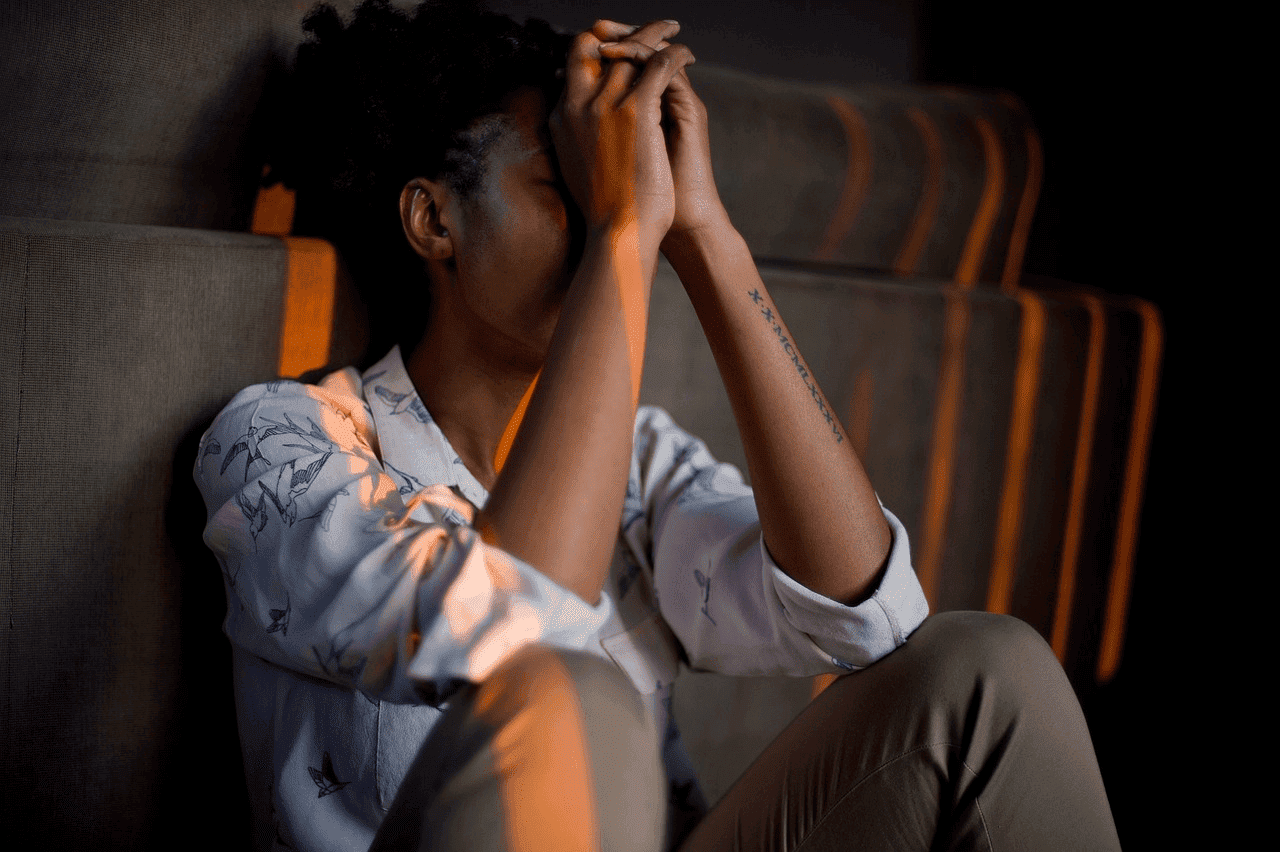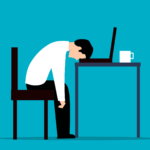Depression is a severe mental health condition that affects millions of people worldwide. It has a significant global health issue, ranking as the fourth leading cause of disability worldwide, and has been closely linked to a substantial percentage of suicide cases. Here are the 10 signs of severe depression you should know.
Number one: Reduced Energy
Do you have a hard time getting things done throughout the day? Not just work but also things like getting up to do household chores or brushing your mouth and taking a shower.
Though some may perceive this as laziness, it might actually be a sign of severe depression. Do you feel tired all the time such that everything is an effort? How often do you leave tasks unfinished?
Fatigue is a common sign of severe depression and it can feel like no amount of sleep is ever enough for you to get your usual energy back. In fact, one wakes up tired, unsatisfied, and fatigued despite hours of sleep.
Number two: Lack of interest in one’s usual hobbies
Do you find yourself uninterested in your hobbies?
A common symptom of depression is loss of interest or pleasure in activities that one used to enjoy. This is often referred to as “anhedonia.” It can manifest in different ways, such as not finding pleasure in activities that one used to enjoy, not feeling motivated to engage in activities, or feeling that activities are no longer meaningful or enjoyable.
Loss of interest in activities can be a significant barrier to recovery from depression, as engagement in activities can provide a sense of purpose, pleasure, and social connection. If you are experiencing this symptom, it is essential to seek professional help, as depression is a treatable condition.
Number three: Daily unexplained body pains
Do you wake up most days with body pains that you could not explain the reason for? And does that pain make it difficult for you to function? Many conditions and illnesses could cause this, but severe depression might be your culprit.
Research has shown that depression has a strong link to the inflammation of the digestive system. Not only does this mean that severe depression makes you prone to stomach cramps and nausea, but also to bloating and other digestive problems.
If you can relate to this, we encourage you to seek help from mental health professionals to relieve your pain.
Number four: disturbed sleep and reduced appetite
Have your sleeping pattern and appetite changed recently?
Sleep disturbances can take various forms in depression, including difficulty falling asleep, waking up too early in the morning, or experiencing excessive sleepiness during the day. Studies have shown that People with depression may have disrupted sleep patterns, such as decreased deep sleep and increased rapid eye movement (REM) sleep. These disruptions can lead to fatigue, irritability, and difficulty concentrating during the day.
Reduced appetite, or anorexia, is another symptom that you may find in severe depression. People with depression may have a decreased interest in food or find it difficult to eat. They may experience weight loss, malnutrition, and physical weakness as a result. In severe cases, anorexia can lead to hospitalization and require medical intervention.
It is important to note that disturbed sleeping and loss of appetite are not specific to depression, however, if it is accompanied by other symptoms mentioned above, then depression may be your culprit.
Number five: Ideas of guilt and unworthiness
Guilt and feelings of unworthiness are common symptoms of depression. These feelings can be pervasive and persistent, and can significantly impact one’s ability to function and enjoy life.
In depression, guilt often involves blaming oneself for things that are outside of their control or for things that are not their fault. This can be related to negative self-talk and self-criticism, where the person with depression may berate themselves for perceived failures, mistakes, or shortcomings.
Feelings of unworthiness can also be a common aspect of depression. This can involve feelings of inadequacy, low self-esteem, and a sense of being undeserving of love, happiness, or success. These feelings can be reinforced by negative thought patterns and can lead to a sense of hopelessness and helplessness.
It is important to note that these feelings are symptoms of depression and are not reflective of the person’s actual worth or value. It can be helpful for individuals with depression to seek professional help to address these symptoms, which may involve therapy, medication, or a combination of both.
Number six: Hallucinations and Delusions
Do you experience, out-of-body experiences due to depression such as hallucinations?
This is known as psychotic depression and in some cases results from severe depression.
If you find yourself experiencing hallucinations, know that help is available and that seeking help is encouraged because an altered perception of reality could impact your well-being in a harmful way.
Number seven: pessimistic view of the future
When you are experiencing depression, it can often be difficult to have a positive view of the future. A pessimistic view of the future is a common symptom of depression, and can make it difficult to feel hopeful about what lies ahead.
In the context of depression, a pessimistic view of the future might include thoughts like:
“Things will never get better”
“I’ll never be happy again”
“Nothing I do will make a difference”
“The future is bleak and hopeless”
These kinds of thoughts can be overwhelming and can make it difficult to take action or make changes to improve one’s situation. They can also reinforce negative feelings and contribute to a cycle of depression.
If you or someone you know is struggling with depression and a pessimistic view of the future, it’s important to seek help from mental health professionals.
Number eight: ideas or acts of self-harm or suicide
Depression is a serious mental health condition that can affect individuals in different ways. Some people may experience thoughts or behaviors related to self-harm or suicide, which can be a result of feeling overwhelmed, hopeless, or helpless.
Here are some common signs or behaviors that may indicate someone with depression is at risk of self-harm or suicide:
Talking about feeling trapped, helpless, or hopeless
Giving away possessions or making arrangements for after they are gone
Withdrawing from social activities or relationships
Showing changes in sleep patterns or appetite
Using drugs or alcohol to cope with emotional pain
Engaging in reckless or impulsive behaviors
Talking about suicide or expressing a desire to die
Expressing feelings of worthlessness or guilt
Engaging in self-harming behaviors such as cutting or burning
It’s important to seek professional help if you or someone you know is experiencing any of these symptoms. A mental health professional can provide support and help develop a treatment plan that may include therapy, medication, or other interventions to manage symptoms and reduce the risk of self-harm or suicide.
If you or someone you know is in crisis or feeling suicidal, seek immediate help by contacting a crisis helpline or emergency services.
Number nine: Reduced self-esteem and self-confidence
Self-esteem refers to an individual’s subjective evaluation of their worth and value as a person. People with depression often experience low self-esteem, which can manifest as feelings of worthlessness, guilt, and self-criticism.
Low self-esteem can also contribute to feelings of hopelessness and a negative outlook on the future. Additionally, low self-esteem may lead to reduced concentration by reducing motivation and confidence in one’s ability to perform tasks.
If this is a recent happening, then depression might be the reason.
Number ten: Reduced concentration and attention
Do you have a problem paying attention and concentrating on a task?
Reduced concentration, or difficulty concentrating, is a common symptom of depression. People with depression may find it challenging to focus their attention, remember details, or make decisions.
These cognitive difficulties can interfere with daily functioning and may contribute to feelings of frustration, helplessness, and hopelessness.
We hope this helps you learn about some of the signs and symptoms of severe depression.
Could you relate to any of the signs in the article? If you can relate, remember that you are not alone and help is out there, we encourage you to seek professional help to aid in your recovery.





